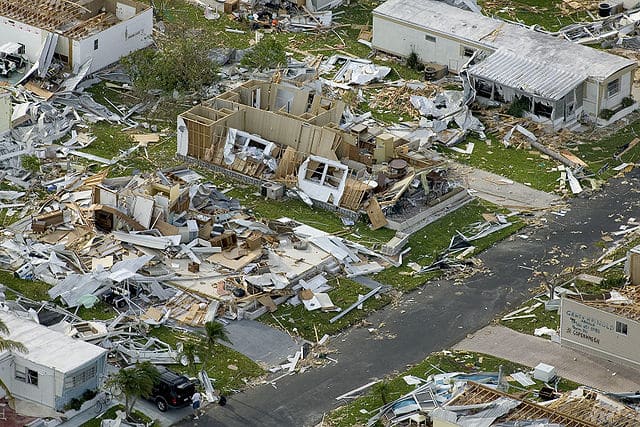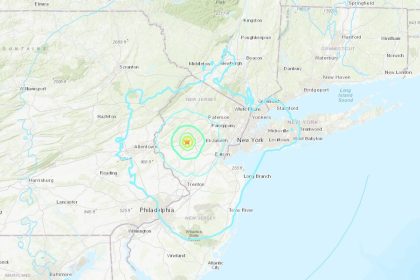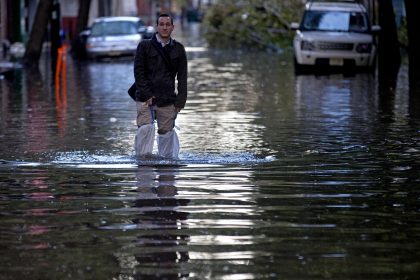Lawmakers Decry ‘Inequities’ in Disaster Relief Assistance

WASHINGTON — Emergency management officials who testified to Congress Wednesday described U.S. policies on disaster relief as long on inspiration but short on administration.
In other words, communities devastated by hurricanes, wildfires, floods or tornadoes receive disaster relief but in a way that is sometimes unequally distributed and unfair to disadvantaged persons.
“Last summer, almost one in three Americans experienced a disaster,” said Rep. Bennie G. Thompson, D-Miss., chairman of the House Committee on Homeland Security.
As global warming increases and deepens the disasters, the Federal Emergency Management Agency is taking on greater importance in the federal government’s response. Congress wants to ensure it reacts appropriately.
“A person’s ZIP code or skin color should not affect how he or she fares in a disaster, but this is exactly what happens,” Thompson said. “Low-income and rural communities are especially at risk.”
The Federal Emergency Management Agency distributes disaster relief funds to persons who suffered the most damage.
However, sometimes homes or businesses that endured the worst monetary damage are the most expensive properties owned by wealthy persons. As a result, they might receive the most relief financing, despite the fact that their need is not as great as low-income persons, according to the agency’s critics.
Much of the government’s disaster response is determined by standards of the 1988 Stafford Disaster Relief and Emergency Assistance Act and its amendments. The federal law was designed as an orderly means of distributing federal natural disaster assistance to state and local governments, which then are supposed to pass it on to their residents.
A November 2020 report from the Federal Emergency Management Agency’s own National Advisory Council criticized its disaster relief program by saying, “FEMA does not meet the equity requirements of the Stafford Act.”
The report defined equity as the ability “to provide the greatest support to those with greatest need to achieve a certain minimum outcome.”
Congress was trying to encourage states and localities to develop comprehensive disaster preparedness plans and to prepare for better intergovernmental coordination in disaster response.
The Stafford Act has been criticized for allowing partisan local politics to influence who receives assistance. Local politicians occasionally were accused of giving the most aid to their favorite organizations or persons.
Other times, private citizens and small businesses complained bureaucratic complexities prevent disaster victims from receiving assistance.
A preliminary report this week from the Government Accountability Office cited confusion over the application process.
It said that “disaster survivors, including low-income individuals, faced numerous challenges obtaining aid and understanding the Individuals and Households Program, a FEMA program that provides housing assistance and other needs assistance to individuals affected by a major disaster or emergency. The GAO recommended, among other things, that FEMA simplify and streamline the disaster assistance process for survivors.”
Rep. Clay Higgins, R-La., talked about catastrophes like 2005’s Hurricane Katrina and 2020’s Hurricane Laura when he said that some Louisianans have learned “the response of the federal government is not to be trusted and not to be relied upon.”
The House Committee on Homeland Security is looking at options to further amend or replace the Stafford Act.
Lori Peek, a University of Colorado sociology professor who studies natural hazards, told lawmakers that unfairness in disaster relief is spread widely among the disabled, elderly, children and persons of color.
As a result, they should expect that “there is no single answer.”
Christopher Currie, the Government Accountability Office’s director of homeland security and justice, said that before Congress can understand the problem, it must pinpoint inequities through better data collection.
“You can’t fix what you can’t identify and measure,” he said.
He mentioned as an example that only after a disaster strikes do FEMA and local officials try to locate disabled persons who might need help. With better planning, they could know where they live before a catastrophe.
“These things don’t have to be a surprise when a disaster happens,” Currie said.
Tom can be reached at [email protected]























